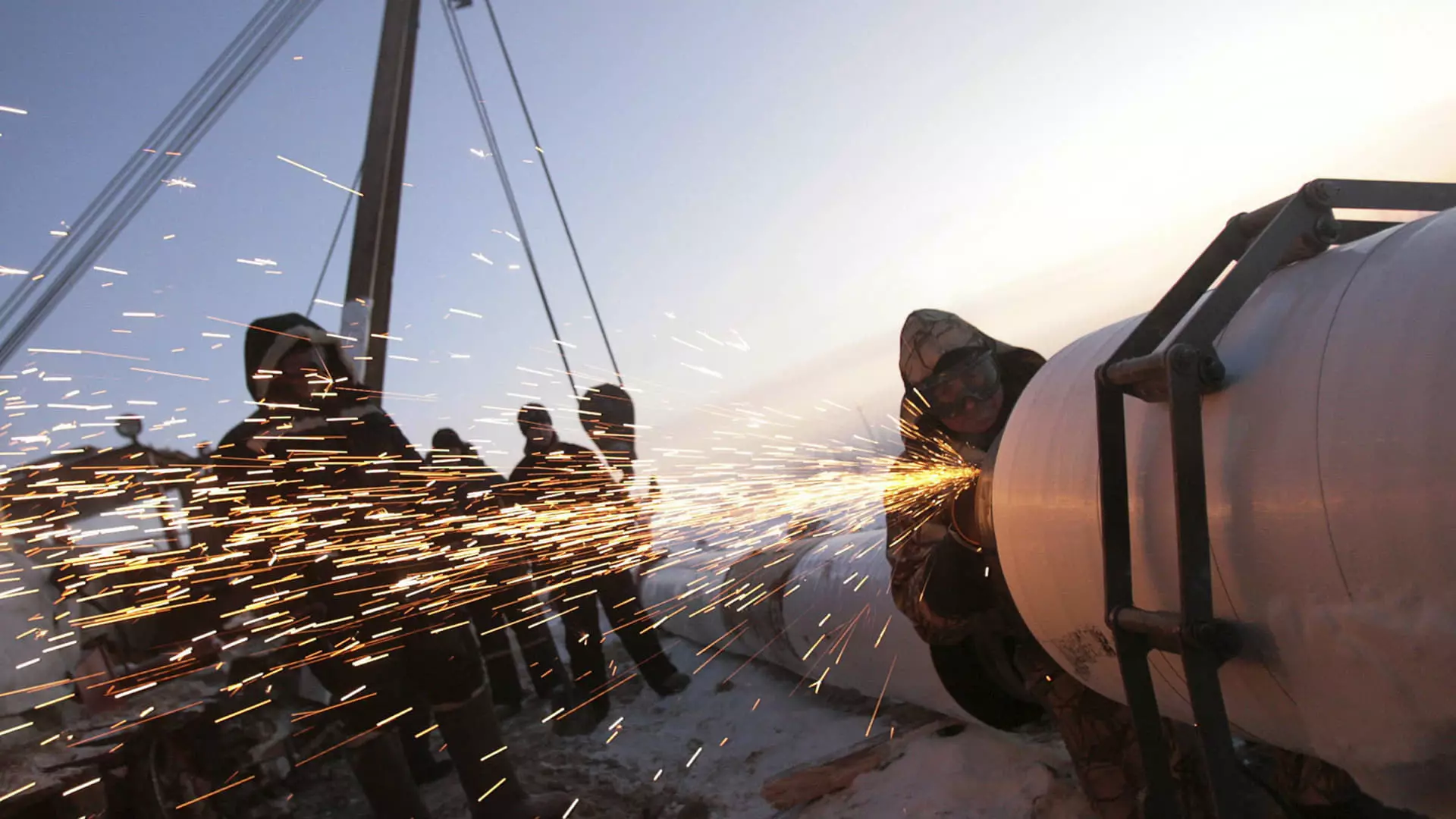The landscape of energy supply in Europe has been undergoing a seismic shift, particularly in the wake of the ongoing conflict in Ukraine. Russian gas giant Gazprom, historically a cornerstone for energy-dependent European nations, is now grappling with a staggering loss of clientele and dwindling influence across the continent.
Recent developments underscore the urgency of the situation. On a Saturday, Gazprom continued to send its usual volume of natural gas through the Soviet-era Urengoy-Pomary-Uzhgorod pipeline, a vital route for supplying gas to Europe via Ukraine. However, the atmosphere quickly shifted when Austria’s OMV, one of its last significant European partners, faced a sudden halt in gas supplies. This occurred just hours after an announcement from Vienna, which revealed Russia’s intention to cut off flows in response to an arbitration ruling favoring OMV regarding a previous gas supply dispute.
Austria’s decision to terminate this relationship is a direct consequence of Gazprom’s failure to meet its commitments. With Russia having lost its standing as the predominant gas supplier to Europe since the outbreak of the Ukraine war, the halting of gas flows to OMV signals not just a bilateral conflict, but further evidence of the fractures within the European energy architecture.
As the European Union seeks to reduce its reliance on Russian energy, the prospect of the Urengoy-Pomary-Uzhgorod pipeline shutting down at the end of the year looms large. Kyiv has expressed no interest in extending the existing five-year transit agreement that facilitates gas flow from Siberia to Austria and its neighbors. This transition marks a momentous shift away from decades of reliance on Russian gas, a system meticulously forged during the Cold War era and refined in the post-Soviet landscape.
The ramifications of the pipeline’s potential closure are significant. Austria, which has depended on Gazprom for nearly 40% of its gas supply, now faces the prospect of diminished energy security as it diversifies its energy portfolio in a bid to overcome the dependency on Russian exports.
Despite the complexities of reduced supplies, Austria’s energy regulator affirmed on the day of the gas supply halt that domestic prices and supplies remained stable. Gazprom still aimed to deliver 42.4 million cubic meters of gas to Europe on the same day, consistent with daily averages. However, data indicated a notable decrease in flows to Austria from Slovakia, with levels around 16% below typical monthly benchmarks.
The energy landscape reveals an intricate dance of interdependencies among nations. Austria’s OMV is actively seeking to reconcile the awarded damages from Gazprom against forthcoming invoices. Such negotiations further illustrate the extent to which energy cooperation has devolved into a contentious battleground.
With Gazprom’s shrinking market share—dropped from 35% of Europe’s gas supply to a mere fraction—new players have swiftly entered the field to fill the void. Norway, the United States, and Qatar have all seized opportunities to supply European markets, rapidly adapting to shifts in demand. The urgency among European leaders to find alternative sources highlights a broader shift in energy alliances as geopolitical tensions reshape old partnerships.
While the Yamal-Europe pipeline through Belarus has been rendered inactive due to disputes, the Nord Stream mishap serves as a reminder of the fragility of energy infrastructure amid political strife. The explosions that compromised this critical route raised suspicions and allegations among involved parties, illustrating the complex web of international relations interwoven through energy supply chains.
Looking ahead, the energy future for Europe is increasingly characterized by diversification and resilience. The abrupt halting of gas supplies to Austria signifies not an endpoint but rather a turning point, as nations strive to secure reliable energy resources without the Achilles’ heel of over-dependence on a single supplier.
As European countries confront the implications of this evolving energy landscape, it is imperative to prioritize investments in renewables and alternative sources. The significant reductions in Russian gas flow illustrate the urgent need for a sustainable energy strategy that can withstand geopolitical upheaval. In this new era, the key lies in adaptability and collaboration—qualities that Europe must cultivate to thrive amid the uncertainties of global energy dynamics. Through innovation and cooperative efforts, European nations can forge a path toward a more secure energy future, fundamentally reshaping their reliance on resources that have long maintained a tenuous balance of power.


Leave a Reply